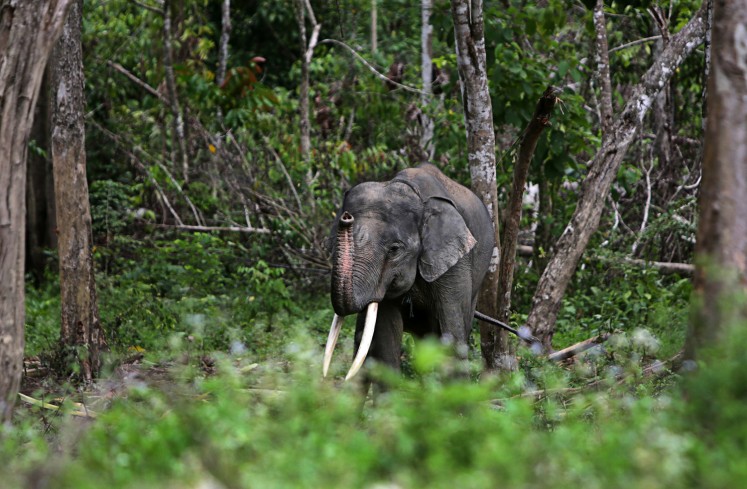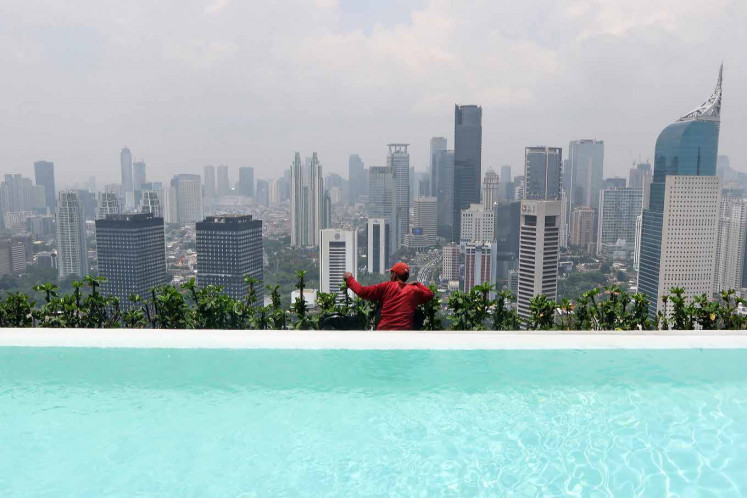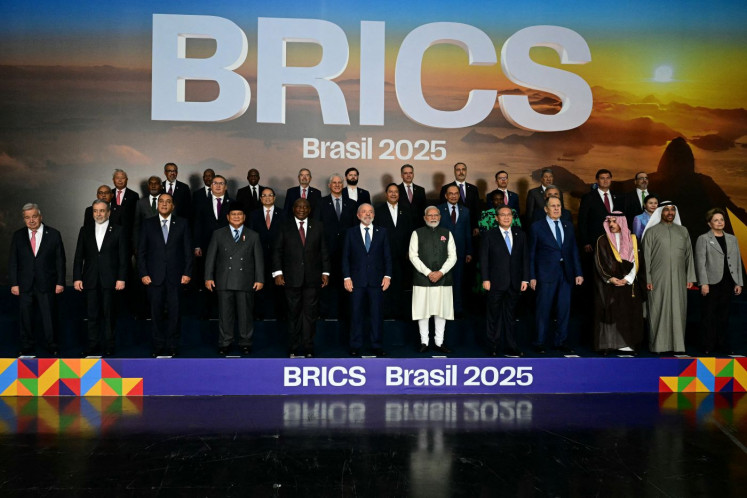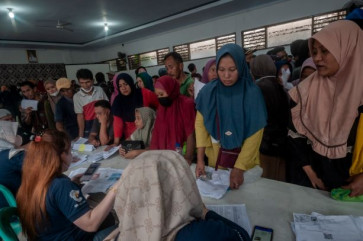Popular Reads
Top Results
Can't find what you're looking for?
View all search resultsPopular Reads
Top Results
Can't find what you're looking for?
View all search resultsPoorly designed policy for financial inclusion of low-income communities
The most pressing issue with the financial inclusion program in Indonesia lies in the following areas: first, the readiness of beneficiaries in managing bank accounts; and second, policy mistranslation from national and local to rural levels.
Change text size
Gift Premium Articles
to Anyone
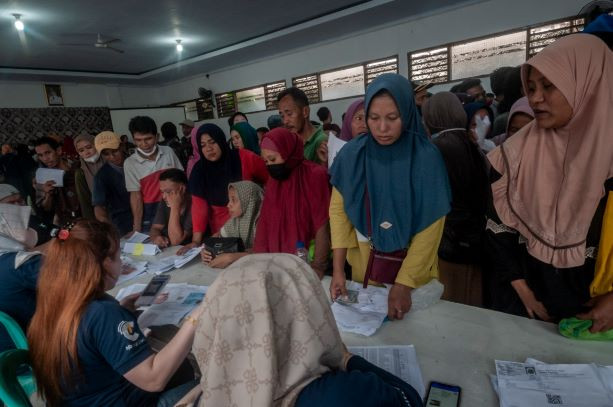 Citizens in need: Local people line up for the government’s cash transfer program in Rangkasbitubung district, Lebak regency, Banten, on Nov. 13, 2022. Over 1,000 lower-income families from nine districts are entitled to the assistance disbursed under the Family Hope Program. (Antara/Muhammad Bagus Khoirunas)
Citizens in need: Local people line up for the government’s cash transfer program in Rangkasbitubung district, Lebak regency, Banten, on Nov. 13, 2022. Over 1,000 lower-income families from nine districts are entitled to the assistance disbursed under the Family Hope Program. (Antara/Muhammad Bagus Khoirunas)
T
he 1945 Constitution places quality education and health services as a priority for the government, but even though Indonesia has been successful in making large investments in these two sectors, as indicated by the fact their budget allocations did not decrease during and after the Asian financial crisis in 1998, Indonesia's lowest-income households are still far behind in the two areas.
Based on the World Bank research in 2016, although educational attainment in Indonesia continues to increase for all segments of society, 85 percent of the country's low-income households do not graduate from junior high school or other equivalent levels. In the same year, the World Bank also found 9 percent of children from all of Indonesia's poor households did not receive any immunizations at all. The immunization percentage has only shown a slight increase since 2007, the year the Family Hope Program (FHP) was inaugurated.
FHP is a conditional cash-transfer program for Indonesia's lowest-income households, which was originally created as an instant instrument to alleviate poverty in which the poor households are given cash directly from the government (Government-To-Person/G2P) every three months through the post office.
Although this social assistance program is intended to improve the welfare of the poor instantly, FHP is expected to have a long-term effect if the payment is allocated by households for investment in education and family health. The best-case scenario is with the appropriate allocation of money in the household, FHP can help the 10 million of the population with the lowest incomes in Indonesia to get out of poverty.
After the launch of Universal Financial Access by 2020 (UFA by 2020) in 2015, a global mandate from the World Bank to promote financial inclusion, the Indonesian government in 2017 attempted to reconfigure this global policy to the national level by digitizing FHP. G2P payments are no longer sent via the post office, but through a bank account. The 10 million poorest women in Indonesia, who are FHP beneficiaries, are given a BNI Bank account with a specific type of account called BNI Laku Pandai.
BNI Laku Pandai account is a concrete form of the government's efforts to support financial inclusion because the financial products offered with this type are very affordable and reliable for low-income households. With financial inclusion, the lowest-income segments of society can have higher financial resilience.
Financial inclusion can increase the poor's investment in education and health, and trigger the growth of small-to-medium enterprises (SMEs). When income drops, inclusive products such as savings, credit, insurance and remittances can enable the poor to have margin of safety.





